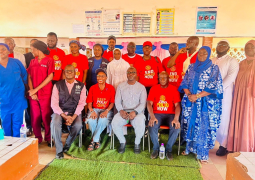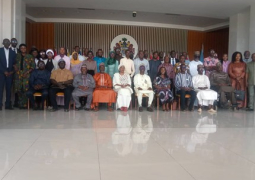The validation was at aimed finalising a comprehensive environmental quality framework that aligns with emerging issues and ensures the country has enforceable pollution control measures.
Representing the Executive Director, Njagga Touray, Deputy Executive Director at the National Environment Agency, made reference to the global triple planetary crisis namely- climate change, biodiversity loss, and pollution, adding that pollution, in particular, poses a significant threat to human health and the environment.
He observed that pollution now extends beyond air, water and soil contamination to microplastics being detected in human bloodstreams and even in the brain.
With The Gambia’s growing industrial sector, spanning agriculture, fisheries, and construction, Touray said pollution levels were on the rise, making environmental standards crucial for regulation.
“The lack of national benchmarks for pollutants such as CO2, particulate matter, and nitrous oxide has made enforcement difficult,” emphasising the past challenge in addressing excessive industrial violations due to the absence of a legal standard.
Deputy Executive Director Touray urged participants to critically assess the document to ensure it meets the needs of the current and future generations.
He also emphasised the importance of not only drafting policies, but also implementing them effectively with collaboration across sectors.
The NEA official expressed commitment to ensuring that the final document becomes an actionable tool in safeguarding public health and the environment.
The stakeholder validation meeting, attended by key stakeholders, was also part of efforts to develop legally binding policies that set limits on pollution levels.





